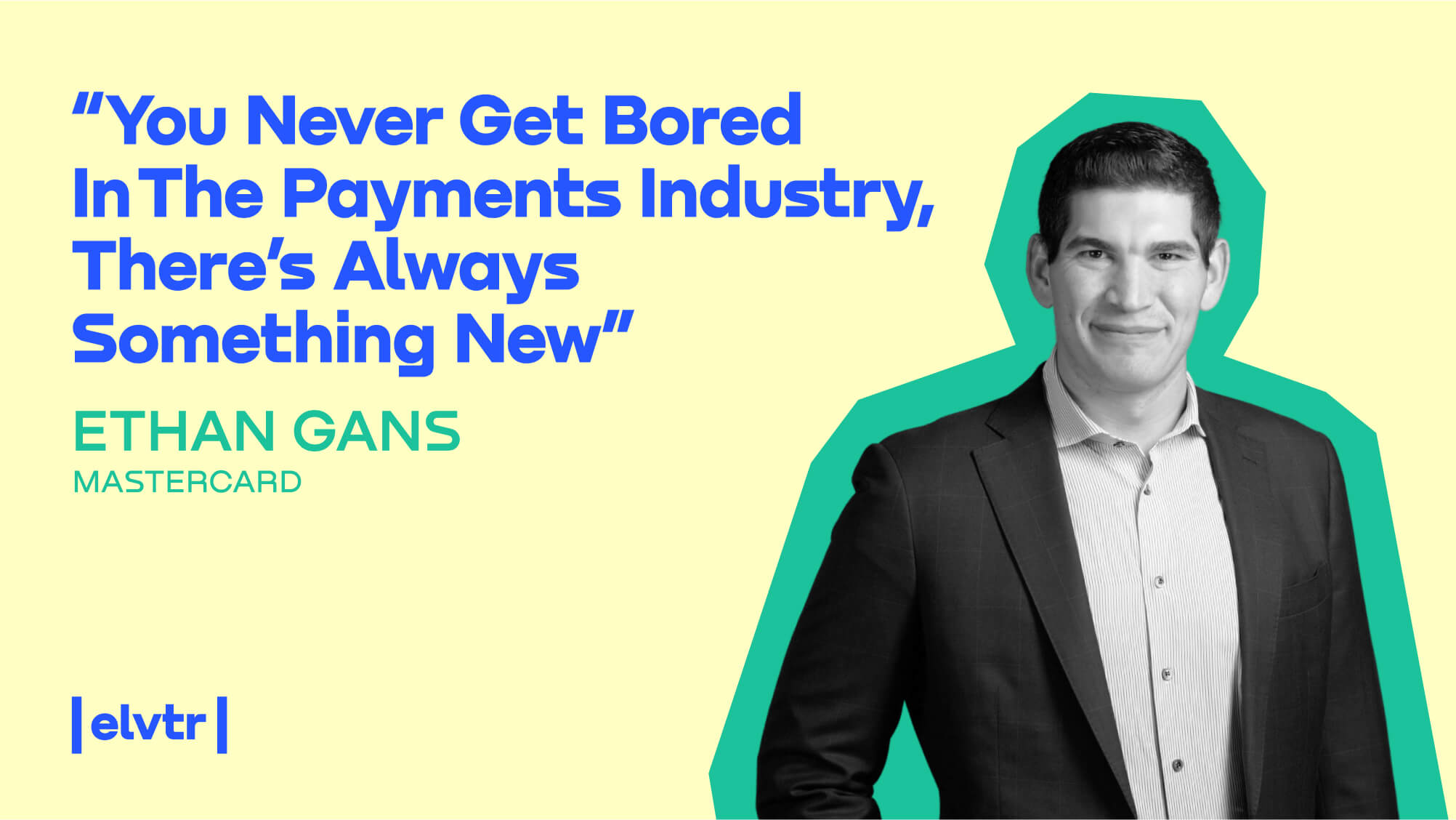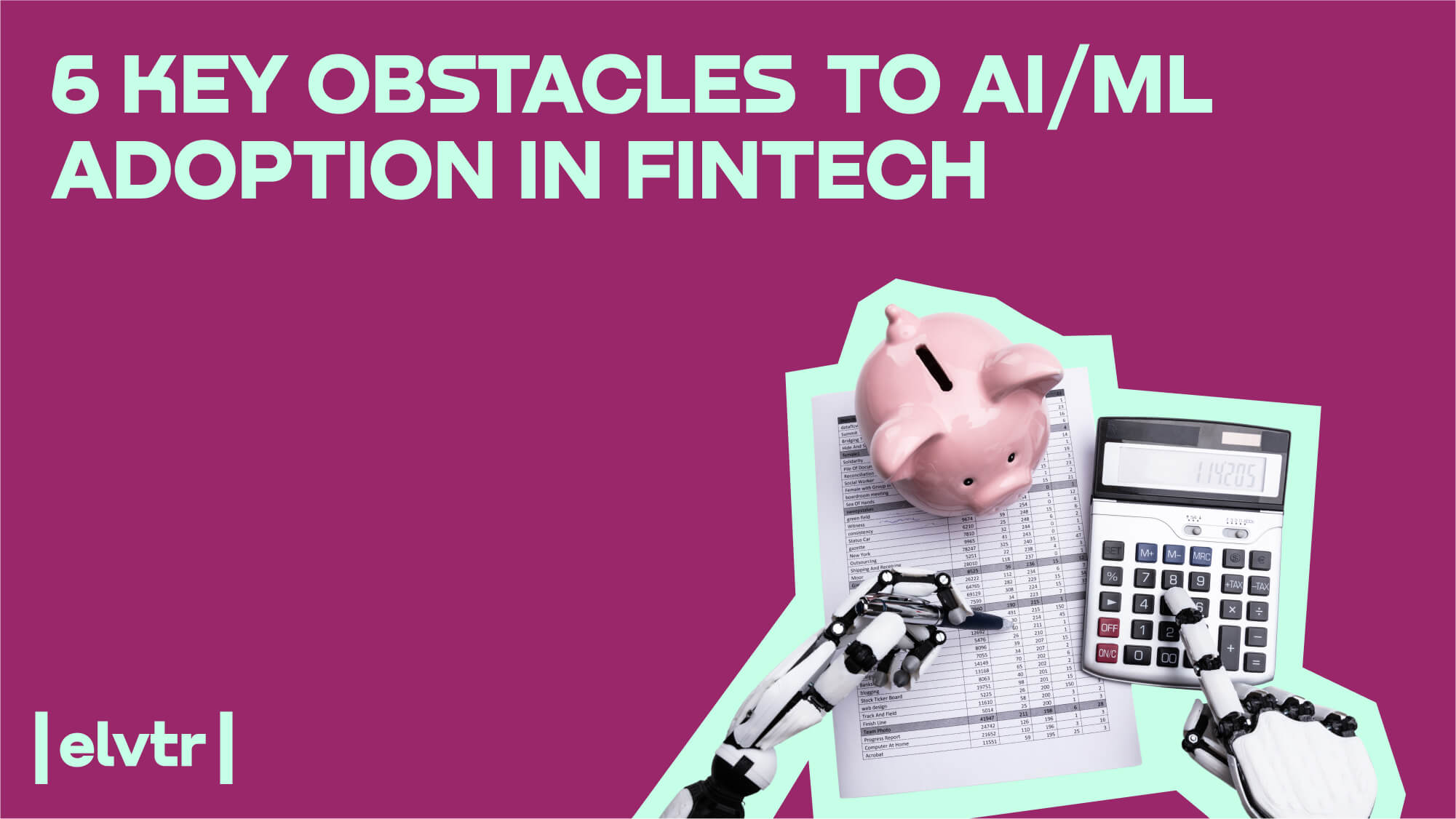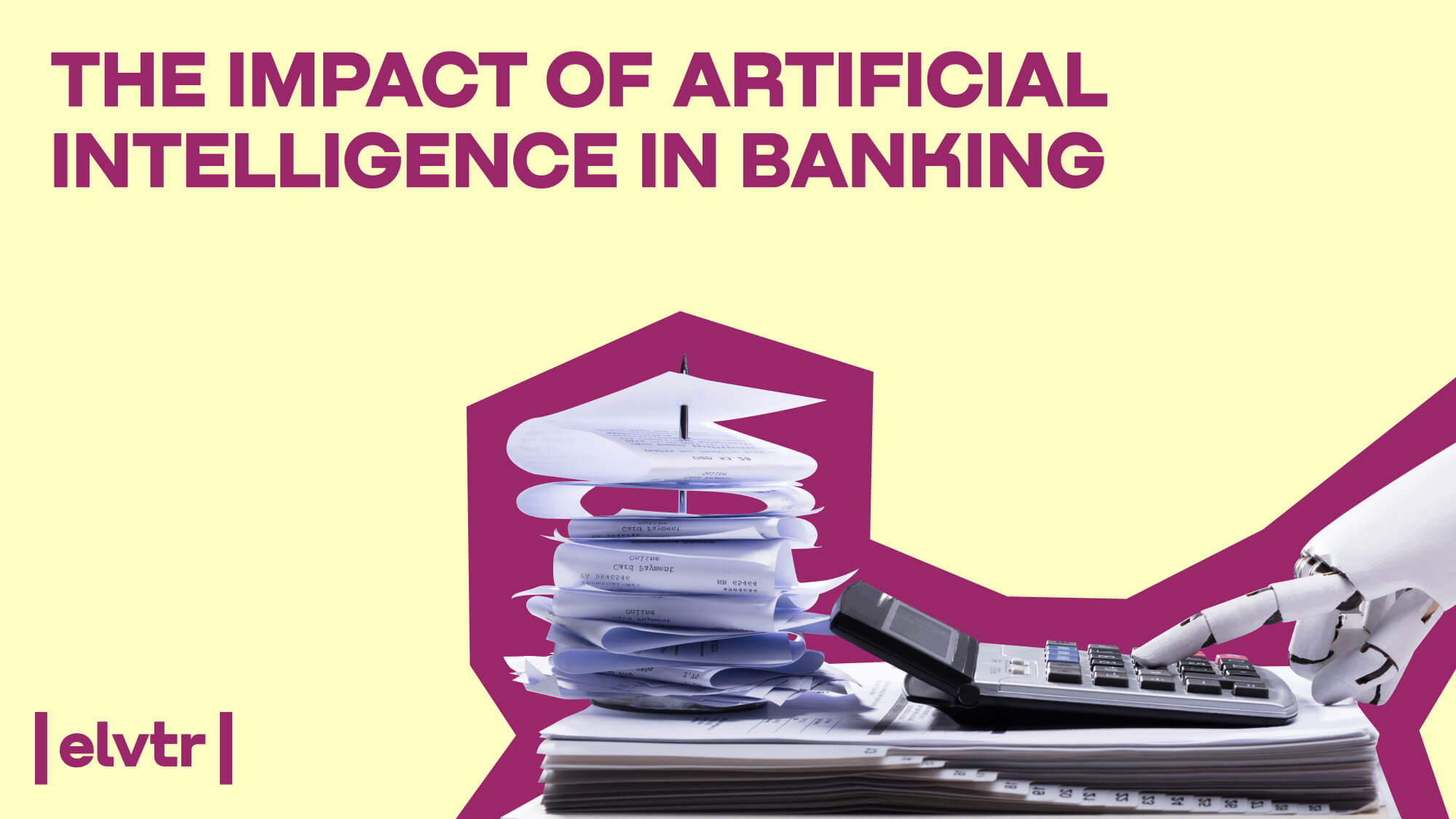- MAIN PAGE
- – elvtr magazine – Ethan Gans, Mastercard: “You Never Get Bored In The Payments Industry, There’s Always Something New”
Ethan Gans, Mastercard: “You Never Get Bored In The Payments Industry, There’s Always Something New”

From stints at small startups to powerhouses such as Citibank and eventually a leading role at Mastercard, Ethan Gans has seen it all in the ever-shifting world of fintech. He sat for a chat with ELVTR, explaining what makes the role of a fintech product manager special, whether you should work for a startup or a bank, and why biometrics is the future of the payments industry.
What led you to a career in fintech?
I started my career working at a small 13-person mobile marketing startup. We developed an SDK for companies to integrate into mobile apps and send push notifications. Then we got bought by IBM, so I spent a few years working at IBM.
I wanted to learn more about financial services, so I got a role at CitiGroup/Citibank, working in their emerging payments and receivables team. It was a new team brought about to revolutionize the bank’s payment space.
Most major financial institutions operate as old-school banks; their technology and infrastructure are not very up-to-date.
This was a team brought about to bring the bank to the 21st century from a technology perspective. I didn't have much banking services experience but what they saw in me was someone who understood the technology. I knew how to work in a fast-paced tech first environment from my startup days and I helped install some of those principles at Citi.
When I started, I thought it was a very simple industry, that payments are A to B: someone swipes a credit card or inputs their Paypal username and the transaction just happens. Now I like to call the payments industry “an onion”. As you keep peeling back the layers, there's more. There's so much depth.
And that's what I love about it. I love to be on the cutting edge and in payments there's a major improvement every year that you have to stay on top of.
After 4 years, I was looking for a change. I wanted to find a smaller company that was more technology focused. I knew people who worked at MasterCard and had positive experiences, so I got a role as product manager on their global payment tokenization team.
MasterCard is very innovative and tech-forward. It describes itself more as a tech company than a financial services company.
Why is it difficult for legacy banks like Citi to embrace fintech?
There's a lot of red tape at all major financial institutions. They're under such scrutiny that they look at everything through a microscope.
Anytime you're trying to bring about something new, it gets put under that microscope and it takes so long to come to fruition. From legal, compliance, AML and KYC, so many different teams have to sign off. That delays a lot of the innovation.
That type of environment/oversight doesn't necessarily exist at fintechs or smaller companies. Fintechs are moving quickly. If you are a bank like Citi and you want to compete with them, you need to learn how to operate swiftly.
Would you advise someone just starting their career in product management to work for a big bank or a fintech startup?
It depends on who you are as a person and what potential career you’re looking to have. When you work at a startup, you have more flexibility and autonomy, but there's more pressure. When I worked at a company that had 13 people, I wondered every day: “Are the lights gonna be on tomorrow”? We didn't have a person for every job.
When I needed to get something done, there wasn't a person who could help me or who had that job specifically. So you take it upon yourself to learn new skills.
For instance, I needed to query data from our database. Our developers knew how to write SQL, but they had enough on their plate. By the time they got to my request I would be past my deadline. So I learned SQL and how to query our database.
Some people have that ambition, drive and curiosity, that thirst to learn. If you want to take on that challenge, I would recommend going into a startup. You learn a lot more working in that environment because you're forced to, for better or for worse.
There are brilliant people out there who don't want that, who want to specialize in something. So when a query needs to be written, I want my engineer to do it, and I want that to be their job. At a startup, all of that is on you. Do you need something, e.g. marketing material? Do it yourself.
Something else that was crucial was that the C-suite at my first job was incredible. They were veteran startup guys. They were right in the weeds with you, rather than a CEO who is never there. You saw that they were working harder than everyone else. That makes you passionate and happy to be working for them.
At Citi it was different. Having resources and teams whose job was to do things for you was great because you could focus on your day-to-day responsibilities. I worked with some of the smartest people I've ever met. Not just great at their jobs, but great professionals and mentors.
So if you're 25 and you want to learn beyond the fintech space, how to be a professional, and you are very scrappy, I would say join a startup.
How’s a fintech product management role different from other product management roles?
It's how you think and approach situations. In the financial industry, you have to think in a certain way, to be aware of certain rules, regulations and user experiences that only exist in the financial industry.
When I worked at IBM, KYC (know-your-customer) wasn't a term , I had never heard of it. In the financial services industry, KYC is such a major component that you have to incorporate it into your product management thinking.
In fintech product management it's different because of the problems you're solving. You have to teach your brain to think in a certain way. For my first fintech job at Citi, I was trained to think about rules and regulations first and innovation second. At a startup, it's the opposite, you think of innovation and then about regulations. First you build the technology and then you build in the rules and regulations around it.
In fintech product management, you have to put yourself in the customer’s shoes, because we live in a world where there's choice. If you have poor experiences with Uber you will go to Lyft. You'll go somewhere else, because you can and it's easy.
I love having choice as a consumer. It brings me joy to know that I'm not pigeonholed or forced to do one thing. But as a product manager, it's like a kiss of death. It's one of the worst things.
So you have to learn how customers in the finance world think and what they truly want. It’s great being a product manager in the sense that you can work in different industries. But in the fintech space it's important to have that specialty.
If you bring someone who has product management experience but not in fintech, they will have a much steeper learning curve, because they don't understand how the world of finance works and what customers are looking for.
What are the key technical skills you need to have for such a role?
That's a little job-dependent. Some companies want their product managers to be more technical than others. Having a base of SQL is useful. Not like a developer, but being able to write queries is valuable.
Confluence and Figma are some of the primary tools out there that ninety percent of product managers use. So having that on your resume and mentioning it during an interview won’t help you secure the job, but will make the hiring manager feel comfortable hiring you.
Another useful skill is being able to understand and interpret data, being able to decipher and pull things from data. So at least an intermediary level of using Excel is important.
ELVTR is disrupting education by putting proven industry leaders in a virtual classroom with eager rising stars. ELVTR courses offer 100% instructor driven content designed to give you practical knowledge within a convenient time frame. Choose the right course for you!
How do you measure the potential success of a new product or feature?
Part of building a product is defining KPIs: key performance indicators. What you feel would make your products successful. From defining these KPIs, you can then analyse the data and determine whether or not your product or service is successful.
It's important to stay close to the customer. Surveys, focus groups, there are many ways that can help you be in front of the customer.
A great product manager conducts these conversations in interviews and UAT testing before launch, so that when you do go into production, you have customers who will use your product saying “This is what I need, this is how it should work.”
It’s important to define KPIs before something's even built. If you're talking about something revenue-driven, the KPI would be increasing revenue by X amount.
There are a lot of enhancements that aren't revenue dependent. You might fix something in the UI that makes customer experience better, maybe shaves 30 seconds off their time, which is great, but not making the company money. Those are the hardest improvements to do, because convincing leadership to pay for something that won’t increase revenue is not always the easiest sell, but a very crucial skill to learn.
What’s the key to writing a good Epic?
Epics are seen by a wide array of individuals, from product managers to developers. So it's important that they are not too technical, but technical enough. Anyone should be able to read and understand them.
One of the important things about writing an EPIC is the acceptance criteria. When a developer completes their work they can go back to the acceptance criteria and ask themselves: “Does what I just built do what the acceptance criteria say?”
So when writing an EPIC you need to be detail-oriented. Not just in the application itself, but also in the specific acceptance criteria. Your development team will read the first acceptance criteria, then they're gonna say “Check or X”, a check meaning they did it and an X that something doesn’t work that way.
So it's your way to bluntly state that these are what we are going to judge your work by. If this EPIC can’t do these things, then you haven’t done your job.
What skill can keep you employed in fintech product management in the foreseeable future?
AI is already a revolutionary field, but we are in the early stages of its development. Although it's been around for a decade, it hadn't hit centre stage until very recently.
So if I was someone who was just starting out, I would do my best to get educated on AI and try to get involved in it. Whether we're talking about financial services or another field, there's going to be an AI component to it. If you have had that background, that's going to bode well for your career in the next 5-10 years.
What trends in fintech will be driving growth over the next few years?
One trend starting to change the payments industry is contactless biometrics. Obviously contactless has existed for a long time, but the thought of using a piece of plastic is going away.
Biometrics is the future. You will have a login with your credit card provider where you're going to have your fingerprint or your eyeball scanned by readers to pay for things.
That exists on a small scale today. But in payments where everything is going digital and contactless, not having to carry a wallet is nearly necessary, so this is certainly a thriving technology. Right now it doesn't exist, but I think five years from now it's going to be a different story.




